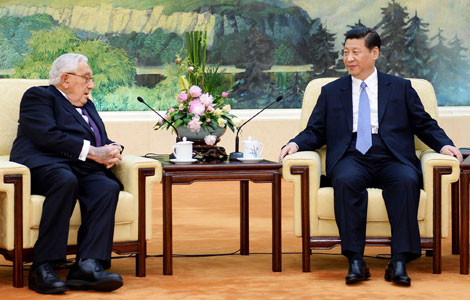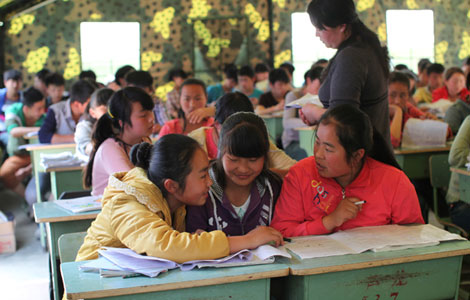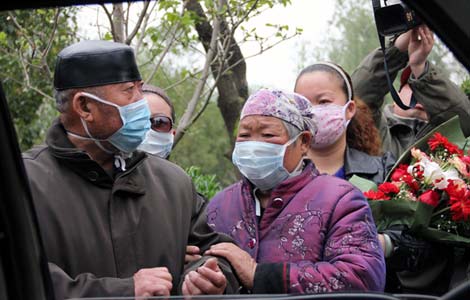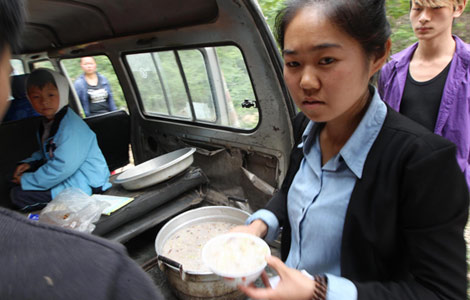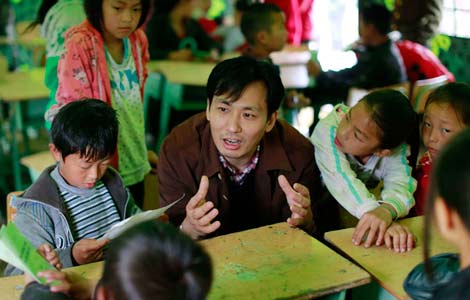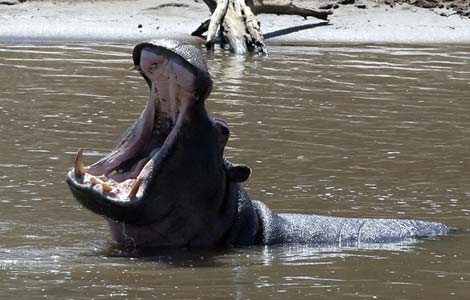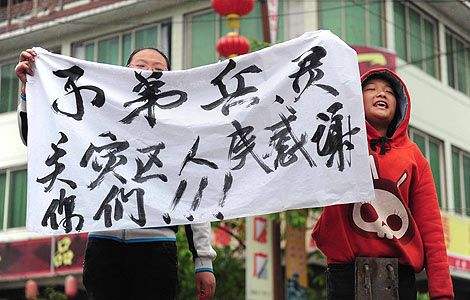'Safe haven' program may spread
Updated: 2013-04-25 02:27
By He Dan (China Daily)
|
||||||||
|
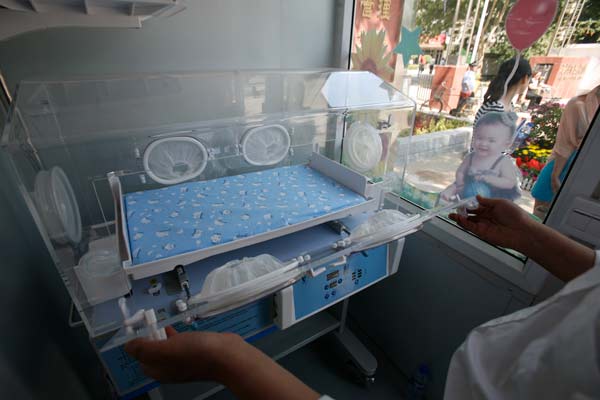 |
|
A "safe haven" station for abandoned babies in Shijiazhuang, the capital of Hebei province. The air-conditioned room features an incubator and a cradle and provides a safe alternative to child abandonment in dangerous public areas. Provided to China Daily |
China may expand a controversial pilot program that provides "safe havens" for abandoned children to major cities, a top Ministry of Civil Affairs official said on Tuesday.
The move is in response to media reports in March of several cases in which infants died after being abandoned in unsafe public places.
Zhan Chengfu, director of the ministry's social welfare and charity promotion department, said the government should make more of an effort to guarantee abandoned children's right to live.
"The establishment of safe havens for abandoned babies is vital to protect innocent children," he said, adding that child abandonment is inevitable despite being outlawed in China.
More pilot programs can contribute to feasible practices that can later be rolled out nationwide, he said at a symposium on safe havens for abandoned children in Shijiazhuang, capital of North China's Hebei province, on Tuesday.
The two-day seminar attracted more than 200 participants, including orphanage directors, civil affairs officials and experts from home and abroad.
He also encouraged child welfare institutions in provincial capitals to learn from the Shijiazhuang Social Welfare Institute's practices.
Han Jinhong, director of the institute, said the newborns' haven has received 149 abandoned babies since it opened in June 2011.
The air-conditioned room, located outside the gate of the institute, has an incubator and a cradle. Once someone leaves a baby in the room, the bell rings after a delay of two minutes, after which the institute's security guard comes to get the baby. The security guard also patrols the shelter every two hours.
He added that health checks on the children left in the baby haven showed that few had a fever, external trauma or pneumonia, which are common in babies abandoned in unsafe places.
"Before we provided such facilities for abandoned children, many parents, who felt guilty about their behavior, dropped off their children in unsafe places such as parks, train stations and even in the wild in the early morning or late night so they can avoid punishment," he said.
"Therefore, these little lives were threatened by cold, starvation or animal attacks before people could find them."
Chinese media reported several deaths of abandoned children in March.
Beijing News reported that on March 20, witnesses saw a young woman give birth to a boy in a tricycle near a building that sells electric gadgets in Beijing's Haidian district, and then abandon him.
Some volunteers sent the premature baby, who weighed about 2 kg, to a hospital, but the baby died because he had been exposed to low temperatures for more than 40 minutes, the report said.
On March 31, passers-by found a baby abandoned in a pink bag at the greenbelt in Shanghai's Putuo district. Police who arrived later confirmed the baby was dead, Xinmin Evening News reported.
Setting up areas for parents to surrender children remains controversial, as there are concerns about whether such facilities encourage immoral conduct and even lead to an increase in child abandonment.
Jennifer Renne, director of the National Child Welfare Resource Center on Legal and Judicial Issues under the American Bar Association, said no evidence to support those concerns has surfaced in the United States in its own experience with safe havens.
Since 1999 in the US, all 50 states have adopted safe-haven laws that give parents immunity from prosecution if they give up their children in hospitals, police stations and fire stations, she said.
Incomplete data "showed it led to an increase in babies left in safe places and a decrease in babies left in unsafe places," she said.
However, apart from launching baby havens, Renne urged the Chinese government to adopt a comprehensive strategy to protect abandoned children's rights with a greater effort in solving the underlying issues behind parents' decision to abandon their children, such as poverty and a lack of affordable public services.
More early intervention targeting families, especially mothers, including financial and psychological support, housing, employment and education, will help prevent abandonment, she said.
Zhang Shifeng, who heads the China Center for Children's Welfare and Adoption, said the center also plans to introduce the experience from Western countries of providing support for unwed mothers, a high-risk group for abandoning unintended children.
Hu Xiaolin, director of an orphanage in Chongqing, approved the launch of more baby hatches in cities, but he believes such facilities should be available in hospitals and busy streets rather than somewhere near orphanages, which usually are in suburbs.
Related readings:
At care home, abandoned children are never forgotten
Parents, abandoning kids is a crime
Families who take in abandoned children must be helped
Abandoned kids deserve care
Man arrested as infant found abandoned in airport
Most Viewed
Editor's Picks

|

|

|

|

|

|
Today's Top News
Sluggish growth takes its toll on foreign lenders
Investors find a home in overseas real estate
More Chinese travel overseas, study reveals
Xi meets former US heavyweights
Li in plea to quake rescuers
Canada to return illegal assets
Beijing vows to ease Korean tensions
Order restored after deadly terrorist ambush
US Weekly

|

|
